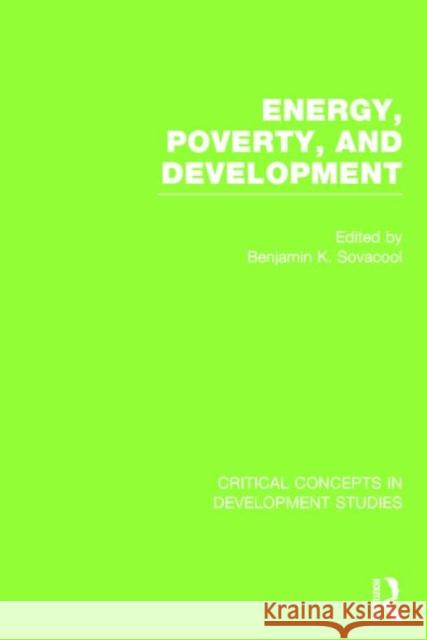Energy, Poverty, and Development » książka
Energy, Poverty, and Development
ISBN-13: 9781138014787 / Angielski / Twarda / 2014 / 2028 str.
Incredibly, close to one-quarter of humanity lives without electricity or other modern forms of energy, while as many as one-third of the world s population relies (at least in part) on traditional biofuels, such as cow dung or firewood, at great cost to its health, security, and economic welfare. Although these stark facts have only recently been fully acknowledged, energy deprivation is a major obstacle to development efforts around the world, especially though not exclusively in the Bottom Billion economies of sub-Saharan Africa and developing Asia. Indeed, sustainable development cannot succeed without a robust energy-access component. Furthermore, this is not just a ghastly problem for the poor, but rather a global concern. Energy deprivation is a leading contributor to disease epidemics, social discontent, political unrest, and environmental instability it gravely threatens the energy-haves as well as the have-nots .
Research in and around energy, poverty, and development is now flourishing. But much of the relevant literature remains inaccessible or is highly specialized and compartmentalized, so that it is difficult for many of those who are interested in the subject to obtain an informed, balanced, and comprehensive overview. This new four-volume collection from Routledge s acclaimed series, Critical Concepts in Development Studies, meets the need for a reference work to make sense of the subject s vast and dispersed literature.
The collection includes a full index and is supplemented by a newly written introduction, which places the gathered materials in their historical and intellectual context. "Energy, Poverty, and Development" is an essential reference work which will be valued as a vital resource by students, academics, policy-makers, and practitioners.
"











